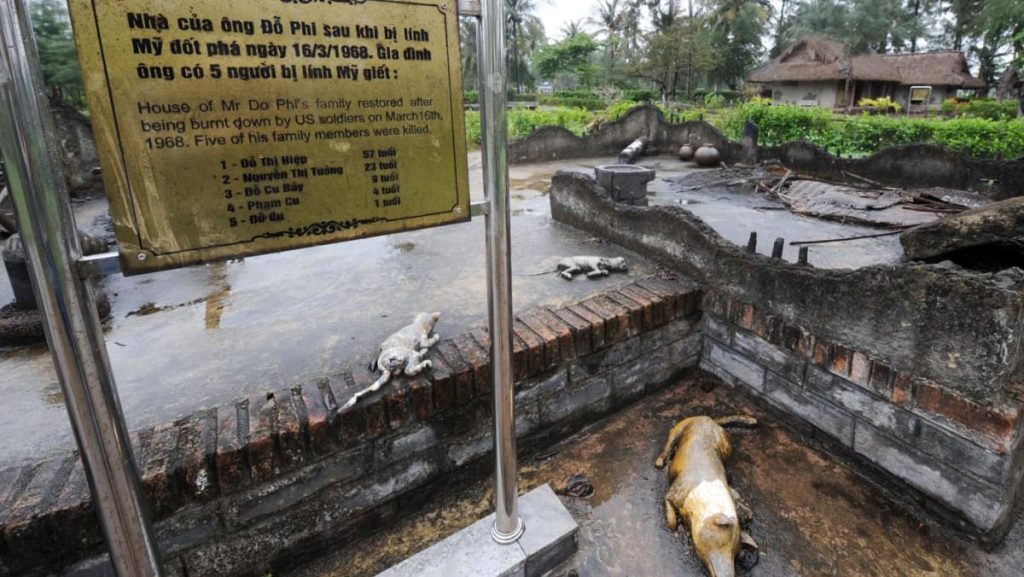William Calley, the US Army platoon leader responsible for the My Lai Massacre during the Vietnam War, passed away at the age of 80 in April. The Washington Post and The New York Times reported his death, but the cause was not disclosed. Calley’s son did not respond to requests for comment. The My Lai Massacre took place on March 16, 1968, resulting in the deaths of 504 Vietnamese civilians. Calley was initially charged with killing 102 individuals and was sentenced to life in prison in 1971, but was released under house arrest after only three days following an order from President Richard Nixon.
US forces entered My Lai under the impression that it was a stronghold of communist guerrillas, but encountered minimal resistance and found few weapons. Despite this, they proceeded to kill almost all the village inhabitants, including women and girls being raped. Calley was the only soldier convicted in connection with the massacre, serving three years under house detention before being paroled and discharged from the Army. Throughout the process, he maintained that he was following orders and saw himself as a scapegoat. The My Lai Massacre polarized the country during the Vietnam War, with Calley becoming a symbol of the conflict.
In his later years, Calley retreated from the public eye and refused to discuss the events of My Lai with the media or historians. However, he did express regret publicly for the first time in 2009, stating that he felt remorse every day for the lives lost during the massacre. Calley was born in 1943 in Miami and had a tumultuous early life, attending multiple high schools before joining the Army in 1966. Despite struggling academically, he excelled in the military, graduating from Officers’ Candidate School just one year before the My Lai Massacre occurred.
After leaving the Army, Calley worked in the jewelry business in Georgia and became a certified gemologist. He was married and had one son before divorcing. The My Lai Massacre and its aftermath remained a significant chapter in his life, with Calley grappling with the guilt and remorse of his actions. His public apology in 2009 marked a turning point in his willingness to confront the tragedy and seek some form of redemption. Calley’s legacy will continue to be linked to the atrocities of the My Lai Massacre and the broader implications of the Vietnam War on American history and society.













